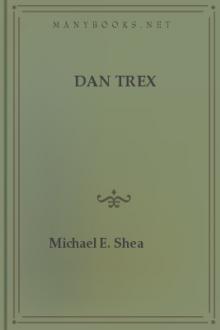How to Be a Mentsh (and Not a Shmuck) by Wex, Michael (summer reading list txt) 📕

Read free book «How to Be a Mentsh (and Not a Shmuck) by Wex, Michael (summer reading list txt) 📕» - read online or download for free at americanlibrarybooks.com
Read book online «How to Be a Mentsh (and Not a Shmuck) by Wex, Michael (summer reading list txt) 📕». Author - Wex, Michael
What happens if someone is planning to eat pork but ends up eating mutton instead? The Torah tells us that he must atone and be forgiven. How much the more so then if he’s planning to eat pork and actually does so?
(KIDDUSHIN 81B)
While the intent to do what is right does not justify a bad or evil act, the intent to do wrong deprives an otherwise laudable action of any real moral value. If you smuggle a starving child out of Darfur, you’re a mentsh—and then some; if you find the same child hiding in your trunk after you land in Cairo, the kid’s no less alive, but has managed to preserve herself without any effort on your part. Saving someone from getting onto a train that neither of you knows is about to explode is simple happenstance; if he misses that train because you’re busy robbing him, you’re still a gonif, and asking the judge for clemency because you ended up saving the victim’s life is nothing but chutzpah.
Classical Jewish thought stands in categorical opposition to the idea that good ends can justify not-so-good means. “A good deed leads to a good deed, a transgression to a transgression,” the Mishna tells us (Ovos 4:2); you don’t embezzle money to give yourself time to study Torah. Conversely, you don’t use the study of Torah or any other aspect of traditional Jewish learning or life to justify your own prejudices, stupidity, or refusal to follow the dictates of common sense. You’re not supposed to, at any rate. The Talmud provides two direct illustrations of the sort of person who does so:
A foolish hasid [i.e., a shmuck who uses religion to justify his shmuckishness] is like what? It’s like he’s walking and there’s a woman drowning in the river and he says, “It’s not right for me to look at her in order to save her.”
(SOTAH 21B)
He sees a child thrashing about in the river and says, “I’ll take off my phylacteries and save him,” except that by the time he gets the phylacteries off, the child has died.
(YERUSHALMI SOTAH 4:1)
The Yiddish word for this particular type of shmuck is khnyok. Defined by Weinreich as “bigot, philistine; petty, unreasonable conservative,” a khnyok can also be characterized as a shmuck with a rule book, the sanctimonious type who is ready to find fault with everybody for not living up to the standards that she has taken it upon herself to enforce. The zealots and ideologues mentioned earlier would all be called khnyoks in Yiddish.
The Talmud makes no bones about the consequences of khnyokish behavior. In explaining why Jerusalem was destroyed, the rabbis tell the story of how a man named Bar Kamtso tried to frame the whole Jewish people by telling the Roman emperor that the Jews would refuse to offer the emperor’s sacrifice in the Temple. When the emperor sends a calf to Jerusalem to be sacrificed, Bar Kamtso makes a blemish in its upper lip. Such a blemish disqualified an animal from being offered in the Temple:
The rabbis considered offering it to avoid trouble with the government when Rabbi Zechariah ben Avkilos said, “People will say that we offer animals with blemishes on the altar.”
They then considered killing Bar Kamtso to keep him from informing on them, but Rabbi Zechariah said, “They’ll say that we killed him for making a blemish in a sacrificial animal.”
Rabbi Yochanan said, “The humility of Rabbi Zechariah ben Avkilos destroyed our Temple and burnt our Sanctuary and caused us to be exiled from our land.”
(GITIN 56A)
As neither shmuck nor khnyok would be coined for more than another millennium, the Talmud was forced to talk about Zechariah ben Avkilos’s “humility,” that is, his fear of what others might think, of how those not in full possession of the facts might misinterpret the proper course of action and possibly cause him to lose face before his inferiors. Zechariah’s “humility” is usually interpreted as lack of understanding. He is so concerned with appearing to obey the law that his action—or nonaction—finally makes its continued fulfillment impossible. This truly insane hyperliteral approach makes Zechariah the Inspector Javert of Jewish law; what it makes of the rabbis who didn’t reject his suicidal plan out of hand is another question entirely.
VII
ZECHARIAH BEN AVKILOS lets us see what happens when we fulfill any kind of ethical or ceremonial requirements solely for the sake of discharging them or showing others how much closer we stand to heaven and The Big Fellow Who Lives There than they do. Subtle and even profound ideas undergo a process of shmuckification that turns them into parodies of their original intent. They become sticks with which to beat the less punctilious, mirrored sticks into which the beaters can gaze upon the glory of their own righteousness—regardless of the price exacted thereby from the community as a whole.
Yet people like Zechariah or the anonymous but foolish hasidim described in the Talmud are no less slovenly or self-indulgent than the beer-sodden zhlob of whom they would most certainly disapprove, the kind of guy who takes his eyes off the TV only to avoid stepping on his kids on his way to the fridge. Zechariah, the foolish hasid, and the drunk have all given in to their basest impulses. They might have started from different bases, but they all share the same feeling of self-satisfaction. The guy with the beer is unquestionably the least dangerous of the bunch; the hasid puts paid





Comments (0)